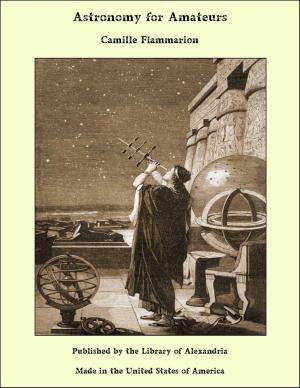| Author: | Emma Newby | ISBN: | 9781465534996 |
| Publisher: | Library of Alexandria | Publication: | March 8, 2015 |
| Imprint: | Language: | English |
| Author: | Emma Newby |
| ISBN: | 9781465534996 |
| Publisher: | Library of Alexandria |
| Publication: | March 8, 2015 |
| Imprint: | |
| Language: | English |
Oh, give me comfort, if you can! Oh, tell me where to fly! Oh, tell me if there can be hope, For one so lost as I! Southey. The grey dawn was slowly and faintly breaking, with the calm, dull light of a winter's morning. The stormy wind had sunk to rest, the fire, no longer fanned by its heavy gusts, had nearly abated, and what more was required to extinguish it, was afforded by the arrival of the fire engine, which had been forwarded with the usual promptitude, though from the distance it had to travel, it arrived too late to be of any effectual service. Mrs. Lesly's house had been the last to take fire, and was not so completely destroyed, as the smaller cottages in the more thickly populated parts of the village. Mr. Ware was rejoiced to see that the church remained uninjured—his own house, too, had escaped, and no fears were entertained for the Manor. Yet, in many parts, the fire still smouldered, though its fury was spent, and gave a light to the landscape, which rivalled that of the wintry dawn. There was a small and pleasant nook by the road side, where on summer evenings, children would assemble to play. Here a group had collected, composed of men and women, surrounding the prostrate form of the unhappy bailiff. Mr. Ware was supporting his head, with that pity for the wretched and suffering which his sacred character made as necessary as his natural feelings rendered it pleasant. Satisfied, as he believed, of the safety of Mrs. Lesly and her children, he had not been tempted from the side of the man, whose remorse called for all that attention which he only could give, and who, if he moved, piteously entreated him not to leave him. Well indeed might he beg him to remain, for in the various groups which surrounded him, he could not discover a single friend. Subject to his tyranny during his day of power, each among them might have stood forward to convict him of some harsh unkindness, if not of actual cruelty and oppression. Amongst Others was Martin, his shaggy eyebrows bent in triumph on the man who, unable to display his usual bearing of conscious authority, lay weak and powerless before him
Oh, give me comfort, if you can! Oh, tell me where to fly! Oh, tell me if there can be hope, For one so lost as I! Southey. The grey dawn was slowly and faintly breaking, with the calm, dull light of a winter's morning. The stormy wind had sunk to rest, the fire, no longer fanned by its heavy gusts, had nearly abated, and what more was required to extinguish it, was afforded by the arrival of the fire engine, which had been forwarded with the usual promptitude, though from the distance it had to travel, it arrived too late to be of any effectual service. Mrs. Lesly's house had been the last to take fire, and was not so completely destroyed, as the smaller cottages in the more thickly populated parts of the village. Mr. Ware was rejoiced to see that the church remained uninjured—his own house, too, had escaped, and no fears were entertained for the Manor. Yet, in many parts, the fire still smouldered, though its fury was spent, and gave a light to the landscape, which rivalled that of the wintry dawn. There was a small and pleasant nook by the road side, where on summer evenings, children would assemble to play. Here a group had collected, composed of men and women, surrounding the prostrate form of the unhappy bailiff. Mr. Ware was supporting his head, with that pity for the wretched and suffering which his sacred character made as necessary as his natural feelings rendered it pleasant. Satisfied, as he believed, of the safety of Mrs. Lesly and her children, he had not been tempted from the side of the man, whose remorse called for all that attention which he only could give, and who, if he moved, piteously entreated him not to leave him. Well indeed might he beg him to remain, for in the various groups which surrounded him, he could not discover a single friend. Subject to his tyranny during his day of power, each among them might have stood forward to convict him of some harsh unkindness, if not of actual cruelty and oppression. Amongst Others was Martin, his shaggy eyebrows bent in triumph on the man who, unable to display his usual bearing of conscious authority, lay weak and powerless before him















